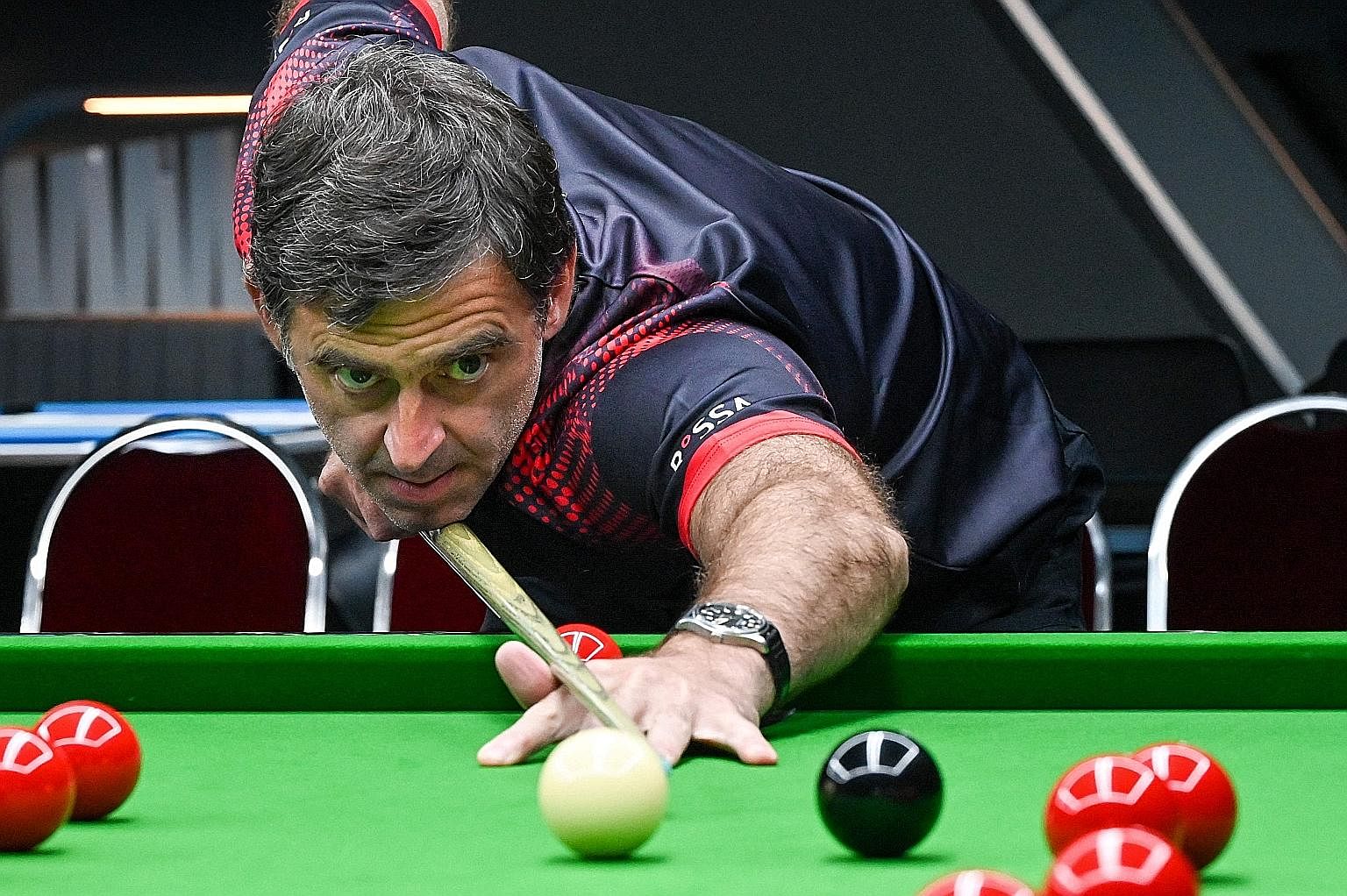V.K. SANTOSH KUMAR
India gave snooker to the world in 1875. But the country has yet to produce a world champion.
Seven-time world snooker champion Ronnie O'Sullivan believes this is because other sports are more popular in the country.
"In India, apparently sports like cricket, badminton and hockey are more popular," he told tabla!
"So, you don't get many people wanting to play snooker. It's difficult to produce champions if young children are deciding to play other sports."
India has produced world champions in billiards, such as Geet Sethi, Rupesh Shah, Pankaj Advani and Sourav Kothari, since the 1990s.
But its players have found it difficult to claim the world snooker title despite Advani shinning at the Asian level in recent years.
Aditya Mehta is India's most successful snooker player with a world ranking of 49. Advani is currently ranked 74.
"I'm not quite sure what is the real reason," said O'Sullivan, who was in Singapore last week to open his snooker academy at The Grandstand.
"I just think obviously billiards is a more important sport in India.
"Sethi was a very, very good player. Advani is also a good billiards player. But his attempts at making it big in snooker have not really worked."
To make a mark in snooker, it is important to be based in Europe, particularly in the United Kingdom, as most top-level professional leagues are held in the continent.
According to O'Sullivan, Advani lived in the UK for a couple of years, but did not find it enjoyable.
"I think he missed home," said the 46-year-old Englishman who beat compatriot Judd Trump 18-13 at the Crucible Theatre in Sheffield on May 2 to lift his seventh world title.
"Life on the tour wasn't what he may have expected it to be. It's not glamorous. The prize money is not great. It's not really life-changing. So, I think Advani made the choice that he was a lot happier in India.
"Sometimes, if you are going to take a risk, the rewards have to be good. If the rewards are not that good, then it's difficult to stay committed."
O'Sullivan pointed out that it was the love for snooker that took him to the top. "If you are a young boy, you have to love it to do it," he said.
"To make money from the sport is difficult. So then you are playing it for the love of it. I think you need to love snooker to want to get to the top."
India will always have its place in snooker history. The game, with its six coloured balls in addition to the 15 reds and white cue ball, is widely acknowledged to have been invented in 1875 in Jabalpur, a city in Madhya Pradesh.
According to Scottish author and essayist Compton MacKenzie, young British Army lieutenant Neville Chamberlain was casually experimenting with the game of Black Pool using 15 reds and a black.
Having thrown on some extra coloured balls and recalling that rookie cadets at the Royal Military Academy at Woolwich were called "snookers", Chamberlain observed that all those present were snookers at this version.
The name stuck.
In the 1880s, Chamberlain was based in the hill station Ootacamund - or Snooty Ooty - as the exclusive mountain retreat in Tamil Nadu was known. The game was further nurtured in the colonial-style Ooty Club, a big part of the sport's folklore.
Perhaps as a hangover from its colonial origins, snooker was for a long time seen as an elitist and inaccessible game in India. But the arrival of the exotically named "snooker parlours" in big cities, combined with tables in social clubs, helped transform the landscape.
The Billiards and Snooker Federation of India believes there are currently more than four million players in the country.
O'Sullivan's academy in Singapore aims to develop Asian talents and make them into world beaters. He is not averse to opening a similar academy in India.
"I just play snooker. I love what I do," he said.
"Gary (Tan, the CEO of the Ronnie O'Sullivan Snooker Academy in Singapore) is going to try and expand it to as many territories as he can.
"I support Gary 100 per cent. If we have an academy in India, fantastic. It would be great to support that as well."
But can snooker have a league in India like cricket's lucrative Indian Premier League involving corporate bigwigs and Bollywood stars?
"I try not to get involved in the politics and the business side of sport," said O'Sullivan.
"I tried to get involved 10 years ago but didn't really get much support. So I decided it was more important to just focus on playing and enjoying what I do.
"I play just for fun now. I'm not as driven as I used to be. I'm better at taking defeats.
"I've always been used to doing what I want to do and when I want to do it. Snooker allows me to manage my time, schedule and do what I want when I like it. I like the freedom that playing snooker gives me.
"In snooker, my name is pretty good. So, I want to make a positive impact if I can.
"I don't have any desire to win another World Championship. I'm very happy with what I'm doing. If I win another one, great. If I don't, I won't be disappointed."
"If you are a young boy, you have to love it to do it. To make money from the sport is difficult. So then you are playing it for the love of it. I think you need to love snooker to want to get to the top."
- Ronnie O'Sullivan



